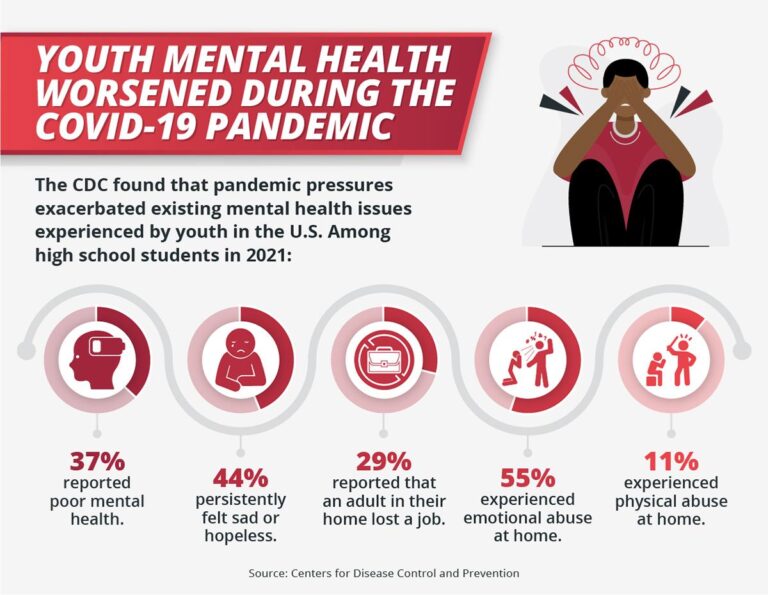Empowering Student Voices: Tackling the Post-Pandemic Mental Health Crisis
Innovative Student-Led Initiatives Transform Campus Mental Health Support
In the aftermath of the COVID-19 pandemic, college and university students nationwide have taken the lead in creating pioneering mental health programs tailored to the evolving needs of their peers. These initiatives prioritize accessibility and destigmatization, offering safe spaces where students can openly discuss their struggles and access support. From peer mentorship groups to cutting-edge digital wellness apps, these efforts are reshaping how mental health care is delivered on campuses.
Core features of these student-driven programs include:
- Round-the-clock virtual peer support networks providing immediate assistance
- Incorporation of mindfulness and relaxation techniques into daily academic routines
- Partnerships with licensed mental health experts to customize resources for diverse student populations
- Anonymous feedback systems to refine and adapt services continuously
| Program Name | Primary Focus | Engagement Rate |
|---|---|---|
| Wellness Peer Circles | Emotional Support | 78% |
| Calm Campus Sessions | Stress Management | 65% |
| Confidential Feedback Hub | Program Enhancement | 50% |
Synergistic Partnerships Between Schools and Mental Health Professionals Yield Positive Outcomes
Amid rising mental health concerns among young people, educational institutions in Houston and beyond are forging strong collaborations with mental health specialists. These alliances embed counselors, psychologists, and social workers within school environments, creating supportive atmospheres where students can comfortably voice their challenges. Emphasizing early detection and sustained care, these programs have notably diminished stigma and bolstered student resilience.
Factors contributing to the success of these collaborations include:
- Routine mental health evaluations integrated into standard health assessments
- Professional development for educators to identify early warning signs of distress
- Therapist-guided peer support groups fostering community and understanding
- Engagement sessions for parents to reinforce mental health support at home
| Program | Number of Participants | Measured Impact |
|---|---|---|
| Houston MindCare Initiative | 1,350 Students | 38% Reduction in Crisis Episodes |
| Student Connect Program | 900 Students | 45% Rise in Help-Seeking Actions |
| Educator Mental Health Workshops | 160 Teachers | 65% Boost in Early Detection |
Advocacy for Enhanced Funding and Policy Changes to Fortify Student Mental Health
Student leaders nationwide are amplifying demands for increased governmental investment in mental health services within educational settings. Experts warn that current funding levels are insufficient to meet the escalating prevalence of anxiety, depression, and stress-related disorders post-pandemic. University administrators and healthcare professionals advocate for comprehensive reforms that expand counseling availability, normalize mental health conversations, and embed wellness education into curricula.
Prominent proposals under consideration include:
- Boosting budgets for campus mental health centers to achieve a counselor-to-student ratio of 1:250
- Mandatory mental health awareness and intervention training for all faculty and staff
- Implementing integrative programs that combine academic assistance with emotional support
- Allocating funds for longitudinal studies on COVID-19’s mental health effects on youth
| Funding Area | Current Budget | Requested Increase |
|---|---|---|
| Counseling Services | $5.2 Million | $16 Million |
| Staff Training Programs | $1.3 Million | $3.8 Million |
| Mental Health Research | $850,000 | $2.7 Million |
Expanding Teletherapy and Peer Support: Expert Recommendations for Broader Access
With mental health challenges persisting among students, specialists advocate for greater investment in teletherapy services and peer support frameworks. Teletherapy’s convenience and confidentiality make it especially valuable for students in rural or underserved regions, removing traditional barriers to care. Additionally, moderated peer groups foster a sense of community, helping to alleviate feelings of isolation.
Highlighted benefits of these approaches include:
- Instant connection to licensed therapists through online platforms
- Private, flexible counseling sessions accessible from any location
- Community engagement via structured peer support groups
- Affordable mental health care options suited to student budgets
| Feature | Student Impact |
|---|---|
| 24/7 Therapist Access | Decreases emergency mental health crises |
| Peer Support Integration | Strengthens social connections and reduces loneliness |
| Anonymity Options | Encourages hesitant students to seek help without fear |
Looking Ahead: Sustaining Momentum in Student Mental Health Advocacy
As the nation reflects on five years since the COVID-19 outbreak, student-led efforts to confront the ongoing mental health crisis are gaining unprecedented traction. These young advocates are not only spotlighting the urgent needs of their generation but also catalyzing systemic changes within educational and community frameworks. Although challenges persist, the progress achieved thus far offers hope for a future where mental health support is more accessible, inclusive, and effective. Continued commitment will be essential to transform these initiatives into enduring solutions that benefit generations to come.

